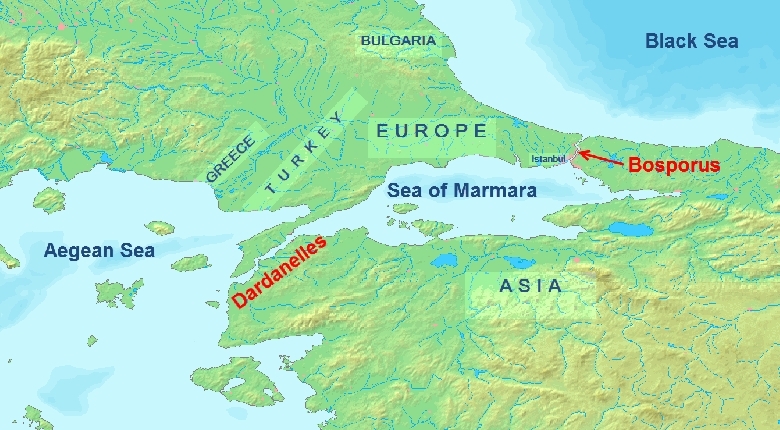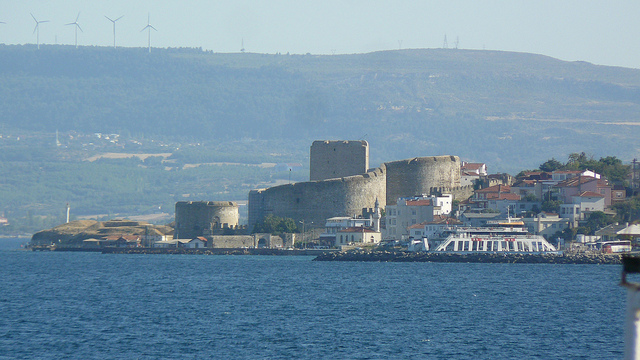Proposed British Naval Action in the Dardanelles;
‘Knock the Props Out’ From Under Turkey and Germany
Special to The Great War Project
(1-4 January) The terrible stalemate on the Western Front has the allies struggling to find another way to stop what now seems to be endless slaughter and force an end to the war.
Just how terrible the slaughter can be understood by the casualty figures for France alone, reports historian Martin Gilbert: 300,000 French soldiers killed since the beginning of the war in August; an additional 600,000 wounded, captured or missing.
One historian described it this way:
“the French death toll in those five months was more than the total number of British war dead in the whole of the Second World War.”
During these days a century ago, Russia is also struggling in its war with the Ottoman Empire in the Caucasus. It appeals to the British to take some action against the Turks that would remove the pressure on the Russian army there, “some action against Turkey that might draw Turkish troops away from the east,” Gilbert writes, in Poland and eastern Europe.
So Britain’s War Council in London turns its attention to the Ottomans. It decides to hit the Turks and hit them hard at a crucial, strategic point – the Dardanelle Straits.
The Dardanelle Straits is a narrow, strategic waterway in northwestern Turkey that connects the Mediterranean to the Black Sea. It is 38 miles long but only about three miles at its widest. Turkey has built a series of forts along the strait to defend against a possible naval attack that might threaten Constantinople, the Ottoman capital.
“The arguments in favor of action at the Dardanelles were convincing,” writes Gilbert. “British warships could gather unmolested in the Aegean. If needed Australian troops, already on their way to Egypt, destined for the Western Front, would be available.”
Lord Kitchener, the British Minister of War, favors an attack in the Dardanelles to fight what he regards as an inferior Turkish enemy. He is supported energetically by Winston Churchill, the British First Lord of the Admiralty. This way, they reasoned, “British help for the Russians could be provided without taking a single soldier from the Western Front.”
There are other arguments in favor of an attack on the Dardanelles. Kitchener, Churchill, and the rest of the British War Council reason that an attack on the Dardanelles “could lead to a swift victory,” Gilbert reports.
“Are there no other alternatives than sending our armies to chew barbed wire in Flanders?”...
…Churchill asks in a letter written to the British Prime Minister at this point a century ago. Other British leaders envision the possibility that this would “bring Germany down by knocking the props from under her.”
On January 2nd a hundred years ago Kitchener informs the Russian government, “steps will be taken to make a demonstration against the Turks,”
So the fateful decision is taken. Attack the Turks in the Dardanelles.


